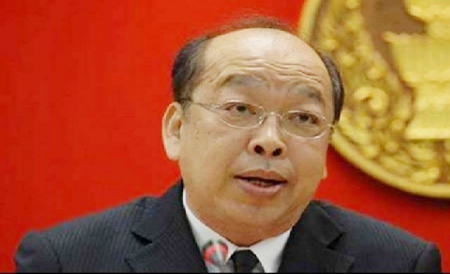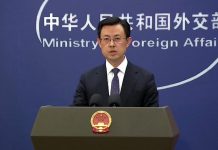BANGKOK, Jan 2 – Thailand’s Deputy Prime Minister Surapong Tovichakchaikul has expressed concern on a decision by the International Court of Justice (ICJ) concerning the Thai-Cambodian dispute on area around the Phra Viharn (Preah Vihear) temple.
Mr Surapong, who is also foreign minister, said the government has prepared to fight in the ICJ when Thai and Cambodian authorities are subject to give their final verbal statements April 15-19, after which the Court will take at least six months before giving its verdict.

The government’s consultant team on international law is in the process of garnering Thailand’s preliminary stance to be submitted to the cabinet for approval before officially making the statement at the ICJ hearings in April, he said.
A team of legal experts including the Council of State is scheduled to discuss details of the final statement next month. The legal team is led by Deputy Prime Minister and Education Minister Phongthep Thepkanjana.
Mr Surapong said he will join next month’s meeting of legal experts to acknowledge the final statement but he will not join the Thai team which will appear before the ICJ in April.
The Court earlier ordered Thailand and Cambodia to withdraw their military personnel from the Provisional Demilitarised Zone (PDZ) surrounding Phra Viharn temple and allow ASEAN observers to access to the zone to monitor ceasefire.
Mr Surapong said the Thai-Cambodian Joint Working Group met for the third time December 17-19, complying with the Court’s order, agreed to determine four areas in the demilitarised zone to get ready for demining them by the end of March.
He said the foreign ministry will continuously inform the Thai people on the conflict this year while officials from the Treaties and Legal Affairs Department will explain the issue to provincial governors nationwide so that they also relay the facts to the people.
The deputy premier said he was most concerned that the ICJ verdict, if unfavourable for Thailand, may lead to undesirable actions by Thai people.
“Every country has to accept the ICJ’s decision. Refusal to accept it may put Thailand in a difficult position in the world arena. It is necessary to explain to the Thai people what the previous government had done that led Cambodia to raise the dispute in the ICJ,” Mr Surapong said.
“When both countries become parts of the ASEAN Economic Community, the borderline is almost meaningless. There should not be clashes on the border as the two countries are neighbours,” he said.
Expressing his grave concern on the outcome of the dispute, Mr Surapong said, “We have to accept the decision. Some people will not understand it though.”
The conflict between Thailand and Cambodia erupted shortly after the UNESCO approved Cambodia’s bid to have the Phra Viharn temple named a World Heritage Site on July 7, 2008.
Thailand claims the ownership of 4.6 square kilometres of scrubland next to the temple.




